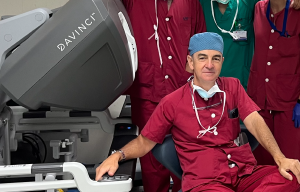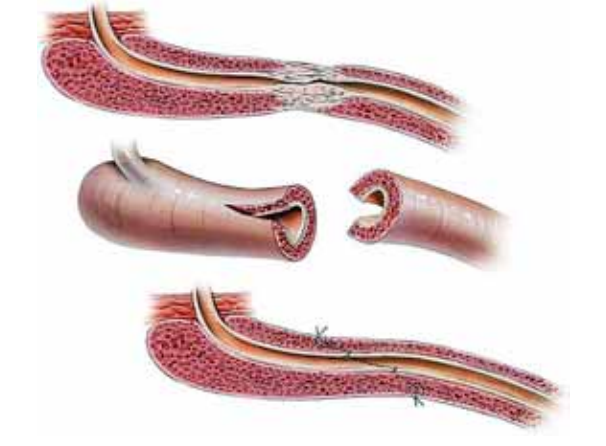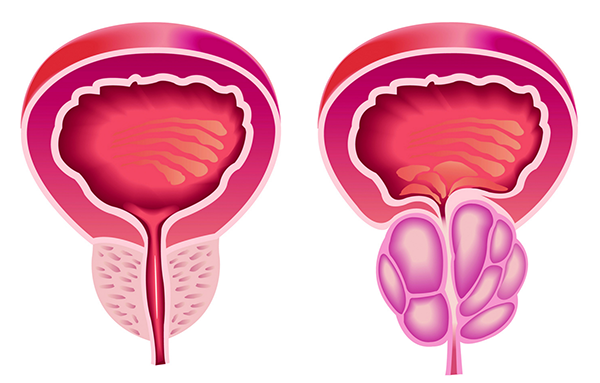Treatment areas
We cover all specialties of Urology, from general processes such as benign prostatic hyperplasia or calculi (stones) to the most specific, mainly urologic oncology (kidney cancer, bladder cancer, prostate cancer, penile cancer, testicular cancer...) reconstructive surgery (urethral strictures, bladder reconstructions…), erectile dysfunction and urinary incontinence.

Urologic Oncology
Oncological urology covers the treatment of malignant tumors involving the genital and urinary tract of the male, and the urinary tract of women.
We have extensive experience in the management of urological malignant tumors of any type and origin (testicles, penis, urethra, bladder, prostate, ureters, retroperitoneal, kidneys, pelvis-calyx, adrenal); the most common are cancers of the bladder, prostate and kidney.
In most patients, you need to surgically remove the tumor and in some patients, add adjuvant treatments such as radiation or chemotherapy, for which we have the cooperation of radiotherapists and medical oncologists.
We always try to perform curative surgeries, but with the least possible aggression. For example, radical prostatectomy is performed by robotical surgery (DaVinci) and in bladder cancer cases in which we do have to remove the bladder, we always try to replace it with an orthotopic intestinal neobladder instead of making an external urinary diversion.
Know more... Tell us about your case
Reconstructive Urology
There are three main causes of urethral stricture in men: hypospadias surgery, urethral catheterizations, surgery through the urethra (transurethral procedures) and urethral trauma during car accidents or work with heavy machinery. These accidents produce pelvic fractures that may result in complete or incomplete disruptions of the bulbar or membranous urethra.
Most urologists, when faced with urethral stricture, usually perform an internal urethrotomy, which most of the times is a temporary palliative treatment, because it only has a 30% success rate. However the treatment we use: urethroplasty with flaps or grafts or anastomotic procedures, are much more effective , with a success rate close to 90-95%.
Know more... Tell us about your case
Benign prostatic hyperplasia
More than half of men over age 60 have an enlarged prostate. The possibility of growth of this gland increases over the years. Generally, this growth is not malignant and is called benign prostatic hyperplasia.
It is important to note that BPH often has no significant symptoms. When the growth of the prostate gland interferes with urinary flow, symptoms such as weak urinary stream, sensation of incomplete bladder emptying, urinary incontinence or complete urinary retention may occur.
Know more... Prostate Test Tell us about your case
Erectile Dysfunction
The World Health Organization defines the Erectile Dysfunction as: "The persistent or recurrent inability to attain and/or maintain an erection sufficient for satisfactory sexual intercourse”.
Between 12% and 19% of Spanish men between 25-70 years suffer erectile dysfunction.
In most cases, it is produced by arterial insufficiency or poor blood inflow in the penis and this disorder can be treated with oral medication. Drug administration can be made orally (tablets), in the urethra or by direct injection (intracavernosally). In more severe cases, patients can be treated with a vacuum device or with the surgical insertion of an internal penile prosthesis.
Know more... Erectile Dysfunction Test Tell us about your case
Urinary Incontinence
Many causes can cause poor bladder control. The good news is that there are many medical treatments that can help.
Half of women have urinary incontinence at some point in their lives and in general, they have twice the frequency of incontinence than men. Incontinence is not an inevitable result of aging. There is almost always a specific cause for this symptom and in most cases it can be treated effectively.
There is no reason why urinary incontinence, if treated properly, should prevent anyone to have an active life.
Know more... Tell us about your case